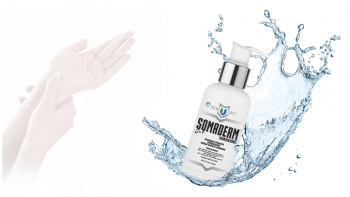Comments
ACCORDING TO LIZ - Cologuard and other pricy products, often of questionable efficacy, are bilking billions in taxpayer dollars.
Cologuard does not even make it onto many lists of best colon cancer tests, but they sure spend enough on TV ads to draw down major Medicare bucks.
The kit itself runs $120 but results can tack on another $600 or $700, and they have an army of telemarketers intent on ensuring the recipients of these overpriced, oversized and wastefully packaged products rife with unrecyclable plastics do their duty to pad the profligate company’s executive salaries.
You can’t even return the unopened product for someone else to be befuddled by the overly complex and confusing directions because each kit goes out pre-assigned to the individual customer. Even if it was never requested in the first place.
As of 2021, Cologuard’s headliner ran $649. The standard, and far more effective, Fecal Immunochemical Test (FIT) costs $24. And can be mailed back as compared to the mandatory UPS shipping that further contributes to greenhouse gases and waste.
To make matters worse Cologuard links to the venture-capitalist digital healthcare platform Recuro Health to hard sell its product. The absolute lack of online complaints about Recuro Health is so suspicious that people should contact them to find out who does their negative content removal. In comparison, a simple search for Cologuard, brings up multiple responses from angry customers.
Cologuard’s price differential pays for aggressive marketing and bloated salaries; there is no proven difference in accuracy here or in other countries.
Cologuard is notorious for false positives not borne out by subsequent colonoscopies, generating needless anxiety for patients and doctors as well as unnecessary ongoing surveillance and – surprise – an increased demand for more Cologuard test kits.
Since medicines and food do not interfere with the FIT test and it only detects human blood from the lower intestine, it tends to be more accurate and have fewer false positives. While it may not detect very early polyp formation which may or may not be precancerous, yearly testing increases its effectiveness.
Repeatedly studies show that annual FIT tests are the most effective and cheapest colorectal cancer screening method with 121 quality life-years gained per thousand individuals and significantly lower treatment costs with a net monetary benefit of $5,883 per person.
Colorectal cancer is the third most diagnosed cancer in the United States, with approximately 152,000 new cases and more than 53,000 attributed deaths in 2024. With only 4.22% of the world’s population, given globally cases run about two million with a million deaths, to what extent are such numbers tied to American lifestyles?
But that is another story.
Approximately 4% of all American adults will receive a diagnosis at some point in their lives. Screenings can reduce suffering and death by over 90%, yet less than two-thirds of at-risk adults in the U.S. are compliant due to lack of awareness, lack of access, prohibitive costs, fear for the results, and the lack of ability to pay.
While FIT testing is 92% effective with yearly screenings, colonoscopies are close to 98% and have the added advantage of the ability to have polyps removed in situ.
The average cost of a colonoscopy in the U.S. is $2,125, about the same as triennial Cologuard testing but without some of the significant benefits. But both are pretty prohibitive for many populations at higher risk such as Indigenous and African Americans. Before target-rich Medicare kicks in, unfortunately too late for some.
With colonoscopies, there is the inherent danger of drugs and/or anesthesia employed to alleviate patient discomfort.
Mild sedation with a benzodiazepine combined with a synthetic opioid such as fentanyl can leave patients feeling groggy or hungover with a higher chance of nausea or vomiting, or even long-lasting delirium. Anesthesia with propofol is deeper with fewer after-effects but is a more serious procedure.
Not to mention the discomfort and disruption caused by the extensive bowel prep and post-op recovery.
Before and after medications plus the procedure itself can put some people at risk from drug hypersensitivities, medical malpractice or tangential side-effects such as falls and other accidents due to prep or post-op dizziness.
However much doctors and hospitals profit from a colonoscopy and even though it is recommended only every ten years, is such an attack on every healthy patient’s wellbeing worth the risk and suffering?
A simple, non-invasive annual FIT test can identify the 92% not-at-risk and refer the rest for further screening and, where warranted, lifesaving surgery.
What any of these screenings do not require is profiteering by companies such as Cologuard, and by insurance companies and medical conglomerates sucking on the taxpayer teat who keep pushing them and the even more profitable colonoscopies on everyone.
Granted the latter do a good job for those who can tolerate them but the monetization of over-testing and procedures pushed by the American medical insurance industry has reverberations across our entire healthcare system.
Only you can determine what the best path is for you..
Do talk to your doctor if you’re over 45, earlier if there is any family history that would recommend earlier surveillance.
Assess if suggestions help you… or any entity’s bottom line.
Don’t be swayed by advertising and promotion.
Do what’s right for you.
And don’t support the pollution and wastefulness endemic to the Cologuard business model.
Take a look at what arrived unasked, a cubic foot of mostly plastic, mostly unrecyclable trash. Note that a FIT test is about half the footprint of the “Let’s get started!” pamphlet with a maximum depth of about half an inch.
(Liz Amsden is a former Angeleno who now resides in Vermont and is a regular contributor to CityWatch on issues that she is passionate about. She can be reached at [email protected].)























